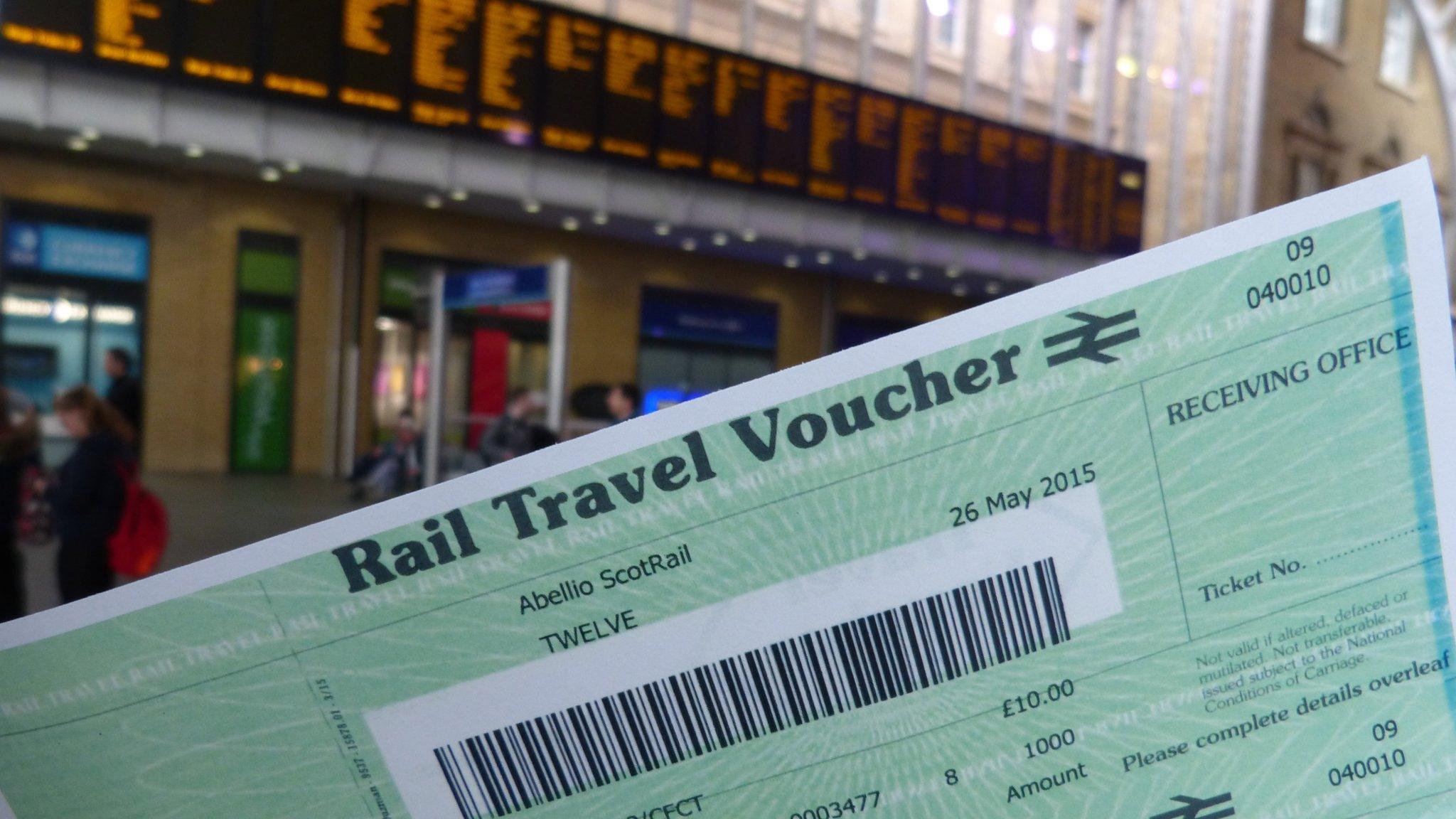Network Rail upgrade delayed by government
- Published
- comments
Mark Carne, Network Rail CEO: "A lot of those targets just aren't achievable"
The government says it will delay or cut back a number of modernisation projects planned for Network Rail.
Transport Secretary Patrick McLoughlin says rising costs and missed targets make the £38.5bn plan untenable.
He blamed Network Rail, saying it should have foreseen the improvements would cost more and take longer.
Labour said it had warned the government needed to change how the railways were run but had "dithered" over taking action.
Network Rail said the plan, which was launched last year as the "largest modernisation of the railways since Victorian times", was too ambitious.
Network Rail controls 2,500 stations as well as tracks, tunnels and level crossings.
The key routes affected are:
Trans-Pennine route: York-Manchester, shelved
Midland main line: York-Sheffield, shelved
Great Western main line work will go ahead
Mr McLoughlin said electrification work would be "paused" on the Midland main line and on the Trans-Pennine route between Leeds and Manchester.
But he said that "electrification of the Great Western line is a top priority and I want Network Rail to concentrate its efforts on getting that right".
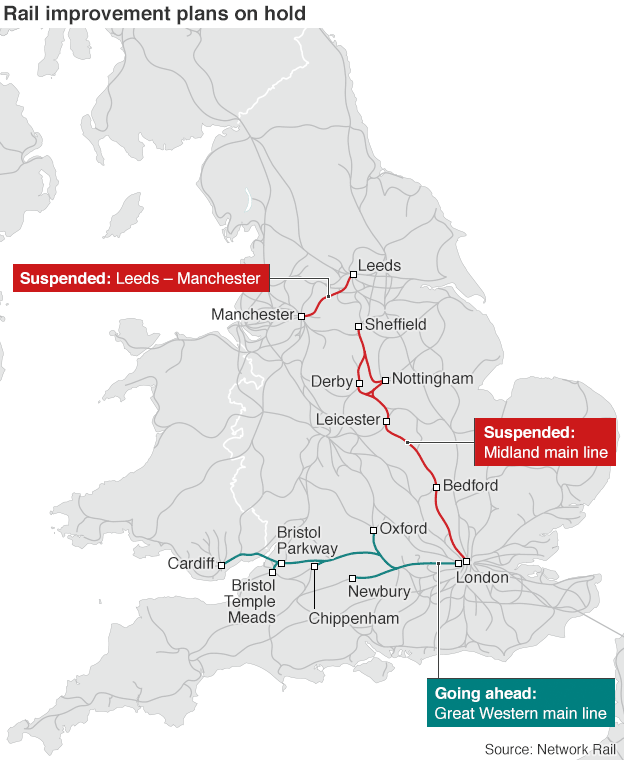
He also announced Network Rail's chairman, Richard Parry-Jones, would leave the group after his three-year term and told MPs none of the executive directors would get a bonus for the past year.
Mr Parry-Jones will be replaced by Sir Peter Hendy, the current commissioner of Transport for London.
Satisfaction falling
The announcement comes as the latest rail passenger satisfaction survey is released.
Travellers in London and south-east England are the least happy with their service, according to Transport Focus, external (formerly Passenger Focus).
The proportion of passengers satisfied has fallen from 82% last year to 80% this year.
Satisfaction on First Hull Trains was highest at 96%, while Southern was the lowest at 72%.
Michael Roberts, director general of the Rail Delivery Group which represents train operators and Network Rail, said: "Too often many passengers are not getting the service they deserve, and for this we are sorry.
Transport Secretary Patrick McLoughlin: "Network Rail spending should stay within its funding allowance"
"The survey reflects the challenges we face to run trains punctually on an increasingly busy network."
'Broken promises'
The shadow transport secretary, Michael Dugher, said the government had known the upgrade could not go ahead as scheduled: "We have been warning time and time again there needs to be fundamental changes in how our railways are run. You spent the election campaign repeating promises you knew you would break after the election.
"Ministers may try to shift all the blame to Network Rail, but this happened on the government's watch and the responsibility for this mess lies squarely with the government."
Anthony Smith, chief executive of the independent watchdog Transport Focus, said: "This... follows years of above-inflation fares increases, crowded carriages and engineering works. Passengers have put up with much inconvenience in the expectation of a better, more reliable, and more comfortable rail service.
"What passengers will want now is a clear plan of action, setting out exactly when Network Rail will start to deliver some of the promised improvements."
'Significant challenges'
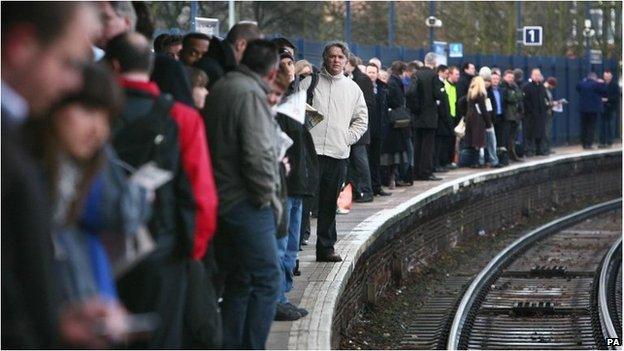
The chief executive of Network Rail, Mark Carne, told the BBC the challenges of delivering myriad improvement projects while still running a railway seven days a week were simply overwhelming.
"Over the last year, it has become obvious that the challenges of operating, maintaining and enhancing the railway are significant," he said.
"I think it's time to level with the public and say that some of these extraordinary projects that we absolutely need are going to take longer and are going to cost more than we originally thought.
"We are going to take the summer to re-evaluate the extension of the programme - we need to do that properly with the Department for Transport and, of course, looking at the impact on trains as well."
He said it would not be possible to estimate the impact of the delays on the final cost.

Analysis: Kamal Ahmed, business editor
To be clear, much of the investment will still happen. It will just be slower and more expensive.
And significant Whitehall sources have also told me that spending £38bn over five years is still the plan.
Which means that, according to those officials, the Conservative Party is not about to break its manifesto pledge to spend that amount.
What does appear to be the case - according to senior people in the rail industry - is that the Department for Transport was warned last spring that the five-year plan was at risk.
But the government has waited until after the election before announcing the change.

Mr Carne said it was important to be honest with the travelling public: "Rather than beating ourselves up over some rather arbitrary target, I think we should level with people and reset expectations around what we can deliver.
"Our railway is a great success story, passenger numbers have doubled in the last 20 years - but it's a huge challenge to transform the performance of our railway while still providing a great service to the four-and-a-half million people that use our railway every day."
- Published25 June 2015
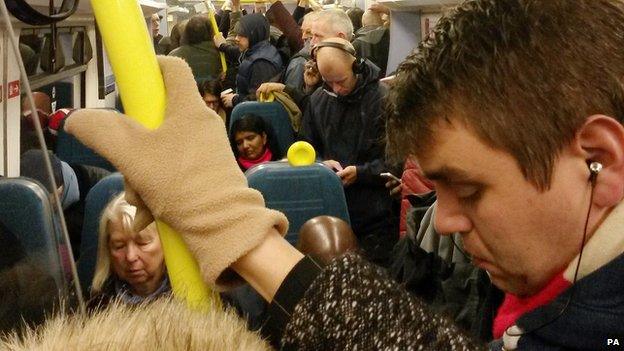
- Published25 June 2015
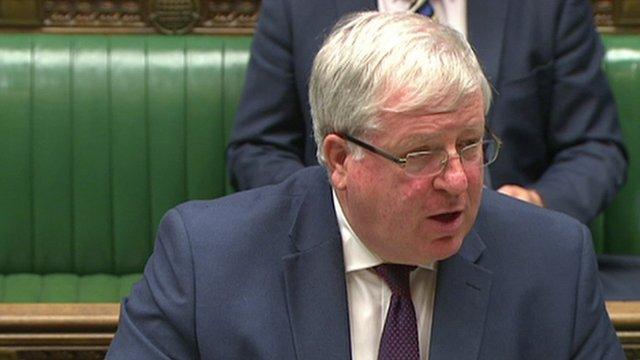
- Published25 June 2015
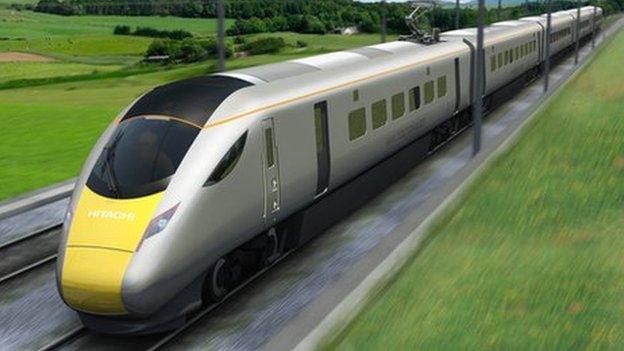
- Published12 June 2015
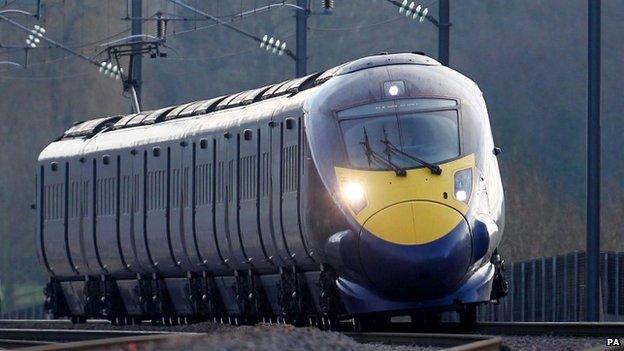
- Published11 June 2015
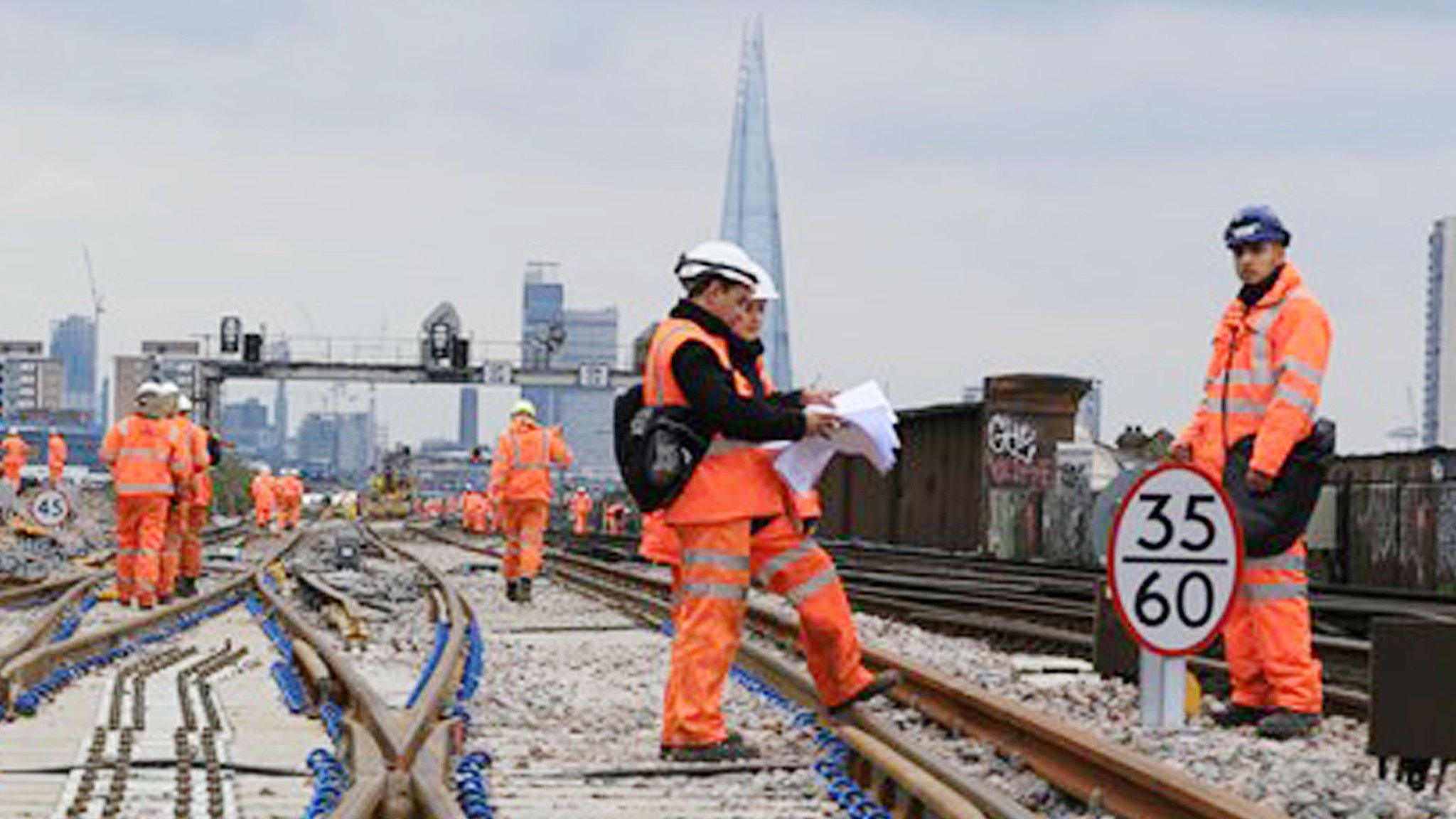
- Published24 June 2015
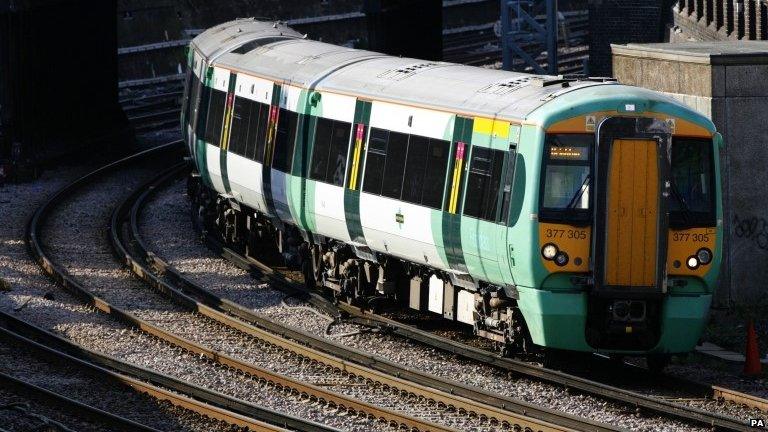
- Published6 June 2015
